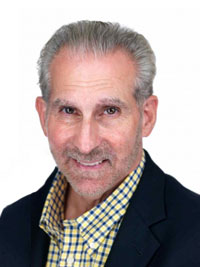 Oxytocin
Oxytocin
The neurochemical of pair-bonding, love, and trust which mediates financial decisions, and most others as well, is a mammalian hormone and neuromodulator called oxytocin. French scientist Vincent du Vigneaud was fast tracked for the Nobel Prize in 1955 just two years after he synthesized oxytocin in his laboratory. Oxytocin is inexorably intertwined with our cognitive functioning even when we think it isn’t. Our “brain chemicals” are always operating, and in force. We need to keep in mind Laibson’s contrast between the “emotional brain” and the “analytic brain.” The crucial point is that we have ‘at least’ two brains in operation at all times in varying degrees of influence, power, and opposition. This makes for challenging decision making, especially when it comes to love and money. After all, most of us have fallen in love with a stock and a person. Life can become complicated at these junctures.
Shareholders want to believe what they are told by the companies they co-own with board members, managers, and employees. Human nature. The “dog & pony” aspect of the annual shareholder’s meeting is an arena for the engineering of oxytocin. The company wants our consent. However, there are many agendas at annual meets. Who, and what, does one believe and ultimately make the leap of faith for, and trust? Again, it becomes clear that money and trust are two of the most important constructs in corporate culture, or any other culture for that matter.
Edward Bernays: “Chief Engineer of Consent”
After polishing off “Propaganda” in 1928, Bernays delivered his magnum opus: “The Engineering of Consent” in 1955. His fundamental principle contended that: “Any person or organization depends ultimately on public [shareholder] approval, and is therefore faced with the problem of engineering the public’s [the shareholder’s] consent to a program or goal.” This was a remarkable insight and discovery. He is the reputed founder of the Public Relations industry. As Freud’s nephew he drew from many up close psychoanalytic ideas from his uncle which he integrated into his PR practice. Bernays was also expert on crowd psychology. Students of the Street are always reminded of the “extraordinary popular delusions and the madness of crowds” which Charles Mackay wrote about in 1841. Bernays also studied Gustave Le Bon and Wilfred Trotter. All corporate board members and shareholders should read their work. All shareholders must read their work!
Corporate Interest, Shareholder Interest and Self Interest
Whose interest [life] is it anyway? A primary inherent human conflict and task revolves around the sustainability of oneself. Self-interest is paramount for survivability. Corporate interest is paramount for sustainability. People depend on, strive toward, and need some degree of homeostasis in order to “survive and prosper.” They need to maintain and regulate their internal environment in order to maintain a stable and relatively constant set of life conditions. They need to be warm, happy, well fed, and financially secure.
Companies depend on proper stewardship to maintain their gyroscope in the stormy seas of competition, regulation, compliance, deception, bubble mania, greed, lust, and just plain everyday business.
Shareholders want to believe what they are told at the annual meetings, in the newsletters, in the annual report, and when chatting it up with investor relations. Consider the obverse; the need to survive is all powerful to the point that healthy disbelief and even a modicum of paranoia are at times indicated. After all, we’ve [shareholders] all been in the trenches, through the wars, and we know that where there’s smoke there’s fire. Then we throw in the healthy doses of oxytocin that saturate our brains (except for psychopaths who have very low oxytocin levels and an almost dormant brain arousal center for empathy). The question then becomes who do we believe and why?
Corporate boards and investor relations department often want to engineer consent, allegiance, and perhaps at times even blind obedience from their partners in the business: the shareholder. Today’s shareholders are savvier than ever before. However, the general human pull still trends toward wanting to believe what we are told. After all, most of us do not want to go through life consumed with doubt, even if our (financial and emotional) lives depend on it. This struggle and dilemma will preoccupy shareholders going forward, especially toward the climax of Q4 coupled with the “fiscal cliff” barnstorming tour. Let us not forget how inventive and clever the Plains’ Indians were in drawing the herd to the cliff and certain suicide. Then they feasted on their kill, and utilized every cubic centimeter of this glorious “beast” to insure their sustainability.
To contact Christopher Bayer directly, please email Christopher.Bayer@TheShareholderActivist.com.








